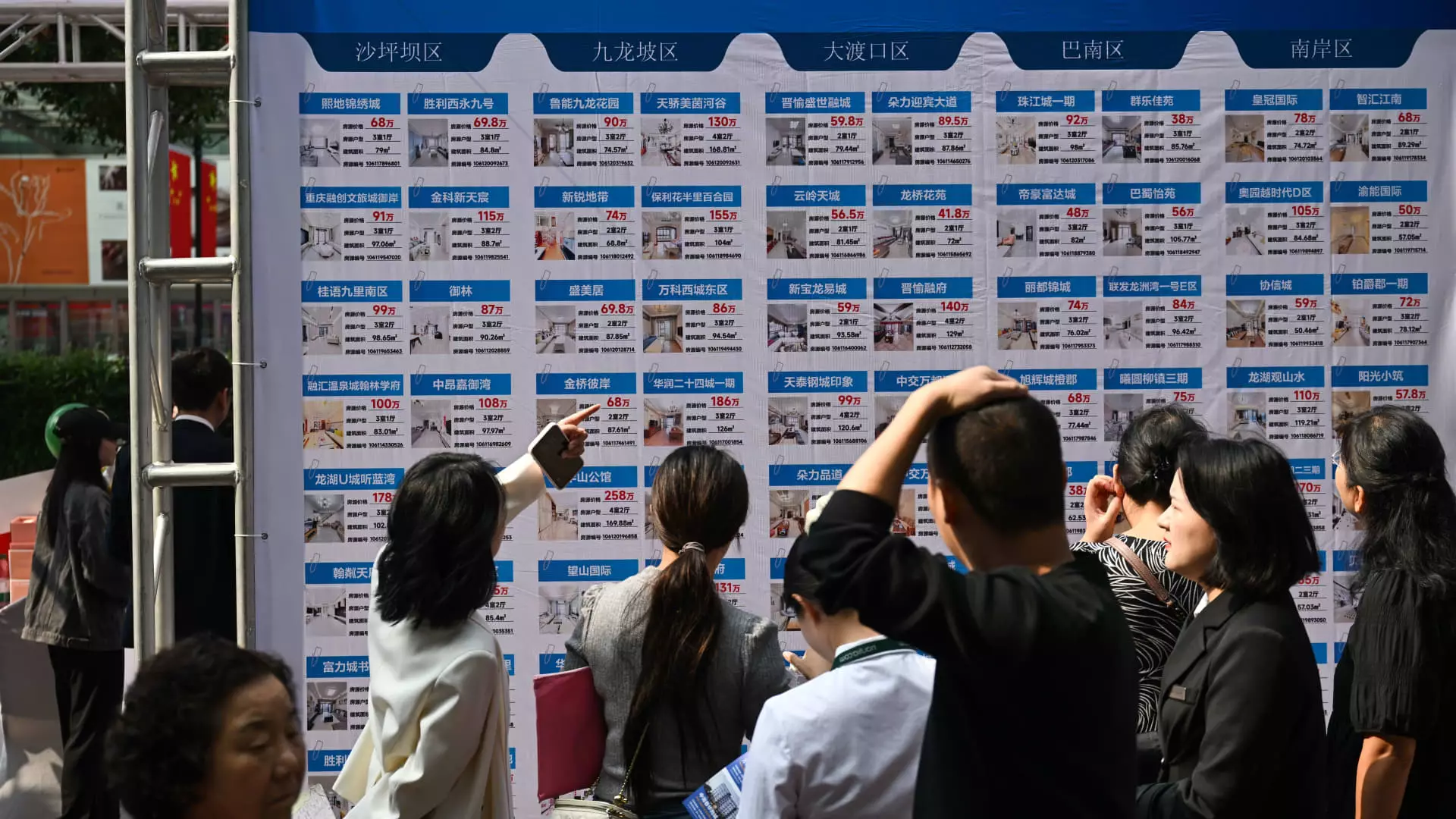China’s property market has been on a tumultuous journey in recent years, marked by rising prices, oversupply, and a significant economic slowdown, affecting both developers and stakeholders. As the industry grapples with these realities, particular attention is being drawn towards KE Holdings, the parent company of the well-known Lianjia platform (commonly referred to as Beike). As the company navigates this turbulent terrain, analysts recognize its potential to capture market share even amidst the ongoing downturn in the real estate sector.
Listed under the ticker “BEKE” on the U.S. market, and also trading on the Hong Kong Stock Exchange, KE Holdings has experienced notable stock performance, particularly with a 38% increase in 2024. This uptick stands in stark contrast to the broader Chinese property stock landscape, which has only realized a modest gain of nearly 3% over the year. Analysts at Jefferies have predicted a favorable environment for BEKE, thanks to the anticipated benefits from government interventions designed to stimulate the housing market, especially regarding transactions of existing and new homes.
This positive outlook is buoyed by KE Holdings’ diversification into ancillary services such as renovations and home rentals. By embracing various aspects of the housing market, the company positions itself as a comprehensive platform that offers value beyond mere transactions. Buying opportunities and new revenue streams could potentially alleviate the pressures that the broader market faces.
The real estate recovery is further fueled by recent policy announcements by the Chinese government. President Xi Jinping’s leadership has emphasized stabilizing the real estate market as a national priority, coupled with monetary policy adjustments such as rate cuts for mortgage holders. Major cities have relaxed home purchasing restrictions as part of these efforts, aiming for a more vibrant post-holiday sales environment.
Despite this encouragement, the realities on the ground suggest a prolonged recovery period. Richard Tang from Julius Baer articulates skepticism about the sustainability of this recovery. While increased transaction volumes have been heralded during holiday periods, there is concern regarding long-term buyer sentiment and inventory lifecycles that have shifted dramatically from pre-sales of new developments to the sale of older properties.
An expert from Bank of America Securities has projected a further decline of 10% in home prices before the market stabilizes. The dynamics of the market may well reflect a fundamental shift in consumer expectations, which warrants careful consideration by investors. The rapid changes in buyer behavior and expectations necessitate an adaptable strategy for companies like KE Holdings.
Notably, KE’s substantial market share in both existing and new home brokerage networks gives it a competitive edge. However, as the real estate sector navigates its “new normal,” the next few quarters will reveal whether the surge in transactions is merely transient—a snapshot of holiday enthusiasm—or indicative of a sustainable trend.
Different investment firms continue to refine their perspectives on KE Holdings’ stock, reflecting the diverse assessments surrounding sustainable growth in the real estate market. Goldman Sachs, for example, sees promise in KE’s eligibility for inclusion in the mainland stock connect program, which could enhance liquidity and investor interest. Their optimistic valuation highlights the potential for BEKE to bolster its market position as the policies supporting the sector take effect.
Moreover, KE’s impressive capital structure, with $10.5 billion net cash by mid-2024, positions it well for potential shareholder returns through buybacks and dividends. This financial robustness may provide a buffer against uncertainties and a means to capitalize on emerging opportunities.
As KE Holdings continues to navigate the complex Chinese real estate landscape, its adaptability and strategic initiatives will be paramount to its success. The current focus is not solely on recovery from downturns but also on redefining its business model to meet the evolving consumer and market needs pertaining to home ownership and renting. Continued vigilance and adaptation will be necessary as both macroeconomic trends and government policies play pivotal roles in shaping the future of the property sector in China. For investors looking to engage with BEKE, understanding the dynamics at play will be crucial in making informed decisions amidst a landscape of both challenges and opportunities.

